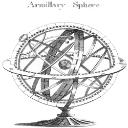Yahoo Answers is shutting down on May 4th, 2021 (Eastern Time) and beginning April 20th, 2021 (Eastern Time) the Yahoo Answers website will be in read-only mode. There will be no changes to other Yahoo properties or services, or your Yahoo account. You can find more information about the Yahoo Answers shutdown and how to download your data on this help page.
Trending News
Does this new paper support Roy Spencer's theory?
http://www.cdc.noaa.gov/people/gilbert.p.compo/Com...
Here is Roger Pielke Sr.'s take on it: http://climatesci.org/2008/07/21/oceanic-influence...
Along with these papers:
http://www.uwm.edu/~aatsonis/2007GL030288.pdf
http://www.springerlink.com/content/j43817g947nq71...
http://www.agu.org/pubs/crossref/2007/2007GL029698...
http://ams.allenpress.com/perlserv/?request=get-ab...
http://www.sciencemag.org/cgi/content/abstract/295...
http://www.nerc-essc.ac.uk/~rpa/PAPERS/olr_grl.pdf
Roy Spencer's presentation (the new paper is to be published
soon):
http://climatesci.org/wp-content/uploads/spencer-p...
Spencer's paper from earlier this year:
"No, the two ideas are unrelated."
Apparently, you don't understand them then.
"Compo and Sardeshmukh are likely to be correct regardless of whether Spencer is right or wrong."
I don't see how that is relevant to the question.
"The Compo paper advances the idea that warming oceans increase humidity over land and increase warming over land."
And that the warming of the oceans is the main cause of the warming of the land (the sort of "hot water bottle effect" that some have put forth), and not the direct effects of CO2 over land.
"Spencer claims that increasing warmth should generate clouds (and note that they'd better be the right kind of clouds, some cause cooling, others warming) as a negative feedback."
I think you need to reread both his paper earlier this year and his new presentation (soon to be paper). He talks of how changes in cloudiness (caused by ocean currents, warming oceans, etc) can cause the the Earth to warm, and that there is a possibility that they have a played a large role in recent warming.
"Seems to be a conflict here."
I see no conflict.
"As a sidenote, he believes in "Intelligent Design" rather than evolution, which will certainly cause many people to adjust their opinion of him."
This really has nothing to do with the accuracy of any of his work on climate/weather.
"The CIRES paper is very cautious to point out that the ocean warming driving the continental warming could be due to the radiative forcing from CO2."
They also note that there is a good possibility that natural influences could have played a large role as well. The fact of the matter is that this paper argues for a lower climate sensitivity--if CO2 has played little role directly in the warming of the continents, then it certainly isn't sufficient to explain the warming of the oceans, and natural factors must have played a larger role than previously thought.
As a side note, Pielke notes that:
"This work also provides support for the perspective on climate sensitivity that Roy Spencer has reported on in his powerpoint presentation last week"
"Spencer, being a fundamentalist Christian, *needs* to prove that man can't affect climate."
Speculating on a "christian motivation" tends to make you look worse, gcnp, than Spencer.
"That's not a good position for a scientist to be in since he's lost his objectivity and now resorts to what amounts to data processing parlor tricks. "
Dr. Pierrehumbert can submit his response to the Journal of Climate (where Spencer's paper was published), where an appropriate response belongs. Until then, a link realclimate isn't a particularly valid rebuttal (though I enjoy reading realclimate from time to time).
"Pielke is looking worse and worse backing up guys like Spencer, but I have to give him credit for sticking to his guns in the face of mounting evidence against him"
Mounting evidence against whom? Pielke? Like what?
Here is a an explanation of Spencer's new paper that is a bit easier to understand (powerpoints themselves, without the actual presentation, are easy to get lost in):
"edit: Bob, if you want to ignore why he uses two different mixed-layer depths"
Wow, that was quite a response. I haven't ignored it. I will get back to you on it. Is that alright?
Alright, gcnp, I chatted with someone who attended the presentation and they noted that their was little discussion of the difference in MLD, and Spencer certainly wasn't "raked". There was some mention of it and Spencer said something along the lines of
"I was limited to available data in answering different, respective questions."
While I don't find this to be a particularly satisfying answer, I am not about to write Spencer's work off without an explanation.
And I notice you didn't respond to any of the points I did make, but rather the response I hadn't yet given. Does that make you a denier?
Here gcnp, read all three of these in their entirety:
http://www.weatherquestions.com/Climate-Sensitivit...
http://climatesci.org/wp-content/uploads/spencer-p...
http://climatesci.org/2008/04/22/internal-radiativ...
In short, you did some misinterpreting.
3 Answers
- BobLv 71 decade agoFavorite Answer
I don't think so.
The Compo paper advances the idea that warming oceans increase humidity over land and increase warming over land. A form of positive feedback.
Spencer claims that increasing warmth should generate clouds (and note that they'd better be the right kind of clouds, some cause cooling, others warming) as a negative feedback.
Seems to be a conflict here.
Spencer is one of the few reasonable scientific "skeptics". He's careful to note that his is an alternative explanation of the data, not a refutation of other scientists, and that there's a possibility they're right and he's wrong. He acknowledges that CO2 does cause warming, but believes negative feedbacks from clouds will ameliorate it.
Some of his critics aren't so charitable:
http://www.realclimate.org/index.php/archives/2008...
Anyway, I think Spencer's work is interesting, and pushes global warming scientists to examine their work closely, but hardly something for people to hang their hat on yet. The chance that he's right is pretty small, but it does exist, in comparison to the usual denier nonsense.
As a sidenote, he believes in "Intelligent Design" rather than evolution, which will certainly cause many people to adjust their opinion of him one way or another. He's also hawking a sensationalistic book these days.
- gcnp58Lv 71 decade ago
The CIRES paper is very cautious to point out that the ocean warming driving the continental warming could be due to the radiative forcing from CO2. When the dust has settled down, Compo and Sardeshmukh are going to admit their results in no way contradict the theory that the observed warming is due to radiative forcing from CO2.
Spencer is playing fast and loose with you. Did you notice that in the analysis in the beginning of his presentation he uses an ocean mixed layer depth of 50 m and that at the end he uses a mixed-layer depth of 1000 m? Do you know why he does that? Because if he uses a deep MLD in the beginning he doesn't get enough variability so his analysis falls apart and if he uses a shallow one at the end he gets too fast a relaxation time and he does't get the trend in temperature right (as the guy on RealClimate.org that Bob linked to points out). Spencer, being a fundamentalist Christian, *needs* to prove that man can't affect climate. That's not a good position for a scientist to be in since he's lost his objectivity and now resorts to what amounts to data processing parlor tricks.
Pielke is looking worse and worse backing up guys like Spencer, but I have to give him credit for sticking to his guns in the face of mounting evidence against him. Sort of reminds me of the fossil turbulence debates in physical oceanography in the 80's.
edit: Bob, if you want to ignore why he uses two different mixed-layer depths, you've moved from being a rational skeptic into denial, which says a lot negatively about you, frankly. There is no reason why you would use two different values unless one value didn't work. And if the same value, high or low, doesn't work in both places, then something is wrong with your physics. If you are at all objective you would see that. But like you, Spencer does things like this because he *has* to show anthropogenic climate change is wrong. He's not acting objectively. That Pielke backs him up on this, or doesn't notice the sleight of hand, is kind of telling. But I bet if you had been at the seminar, you would have see Spencer get raked on the mixed-layer depth.
- Keith PLv 71 decade ago
No, the two ideas are unrelated. Compo and Sardeshmukh are likely to be correct regardless of whether Spencer is right or wrong. (And Spencer is likely to be wrong, since he only considered short-term feedbacks of 2 years or less.)






